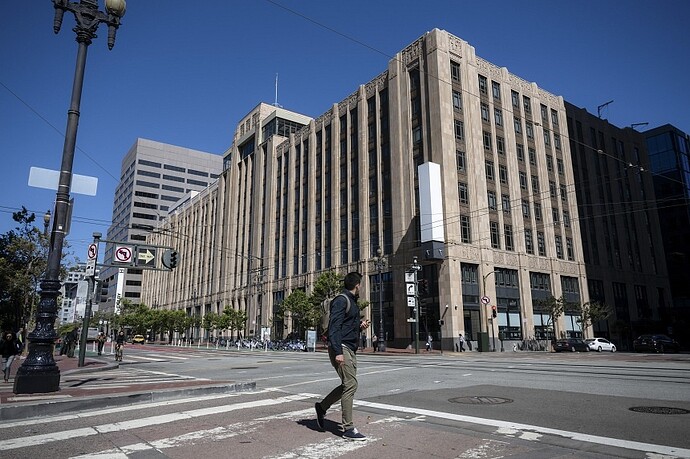SAN FRANCISCO - San Francisco’s long relationship with X is nearly over - and city officials are far from heartbroken.
Mr Elon Musk is closing down his social media company’s headquarters in a gritty downtown neighbourhood in the coming weeks and will move its last employees based there south, to offices in Palo Alto and San Jose, California. New headquarters will be set up in Texas.
But city officials are not lamenting the exit. X bears little resemblance to the company that San Francisco wooed with a tax break more than a decade ago, when it was Twitter, to help anchor a budding tech hub in a downtrodden neighbourhood near City Hall known as Mid-Market. The Covid-19 pandemic, and Mr Musk’s 2022 acquisition of the company and subsequent gutting of its workforce, reduced the headquarters to a ghost town.
“I share the perspective that most San Franciscans have, which is good riddance,” said city attorney David Chiu, who as a member of the city’s board of supervisors backed the tax break that lured Twitter to Mid-Market in 2012.
Twitter once symbolised San Francisco’s status as a start-up capital. But the city’s nonchalant response to the move - amid public posts from Mr Musk about San Francisco’s inflexible tax policies and liberal politics - shows that officials are now less willing to cater to companies considering a move.
Mr Musk and X did not respond to requests for comment.
Twitter was founded in San Francisco in 2006. In 2011, it threatened to forsake its home town for tiny Brisbane, just over the city’s southern border, which wouldn’t levy payroll taxes.
San Francisco’s mayor then, Mr Ed Lee, coping with the lingering effects of a recession and a nearly 10 per cent unemployment rate, proposed a so-called Twitter tax break. The deal would erase the 1.5 per cent payroll tax on new hires for certain companies in Mid-Market. Those companies would, in turn, create jobs and enliven a neighbourhood that struggled with crime, vacancies and homelessness.
After Twitter moved into the new headquarters at 1355 Market Street, its payroll swelled from a few hundred to a few thousand people. The cavernous ground floor became home to upscale bars and restaurants - where people could eat antelope, elk and pig ears.
By 2017, 59 new companies had set up shop nearby, including Uber, Square and Zendesk. Several luxury apartment buildings went up. The boom helped expand the city budget but also contributed to spiking housing costs.
Many of the tech companies also provided free food, so workers didn’t spend as much at local businesses as city leaders had hoped. The Twitter tax break ended in 2019, with politicians considering its success mixed.
Then came the pandemic. Offices emptied, and foot traffic dried up. Mr Jack Dorsey, a Twitter co-founder and its CEO at the time, announced that employees could work from home forever.
In October 2022, Mr Musk bought Twitter for $44 billion (S$57 billion) and soon slashed jobs. Last year, he renamed the company and erected on the roof a giant “X” sign that flashed at night, upsetting neighbours and landing him in trouble with the city.
“It’s like a zombie version of the old Twitter, and I think what a lot of people are feeling is: Just put this bird out of its misery,” said software engineer Yao Yue, who worked at Twitter for 12 years and was let go after Mr Musk’s takeover.
Mr Musk, who clashed with state regulators over pandemic stay-at-home orders and has increasingly enmeshed himself in right-wing politics, recently indicated that he was souring on San Francisco. In July, he posted online that he had been trapped in the company’s garage “because a gang was doing drugs in the street and wouldn’t move!”
[Collection]straitstimes.com
